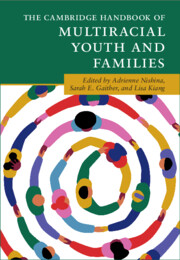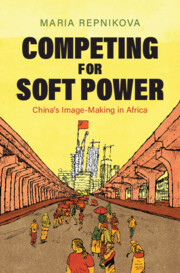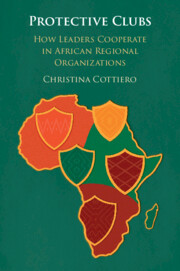Refine listing
Actions for selected content:
1299800 results in Books
Seeds of Solidarity
- African-Indian Relations and the 1935 Labor Rebellions in British Guiana
- Coming soon
-
- Expected online publication date:
- July 2026
- Print publication:
- 31 July 2026
-
- Book
- Export citation
The Problem of the Devil in Cappadocian Thought
- Coming soon
-
- Expected online publication date:
- July 2026
- Print publication:
- 31 July 2026
-
- Book
- Export citation
Mapping the Primordial Universe
- Theory and Observations of the Cosmic Microwave Background
- Coming soon
-
- Expected online publication date:
- July 2026
- Print publication:
- 31 July 2026
-
- Book
- Export citation
Complex Photonics
- Fundamentals, Spin Glasses, and Optical Computing
- Coming soon
-
- Expected online publication date:
- July 2026
- Print publication:
- 31 July 2026
-
- Book
- Export citation
Relevant Logics
- Implication, Modality, Quantification
- Coming soon
-
- Expected online publication date:
- July 2026
- Print publication:
- 31 July 2026
-
- Book
- Export citation
Developing in Older Age
- An Integrative View
- Coming soon
-
- Expected online publication date:
- July 2026
- Print publication:
- 31 July 2026
-
- Book
- Export citation
The Cambridge Handbook of Research Methods and Statistics for the Social and Behavioral Sciences
- Volume 3: Data Analysis
- Coming soon
-
- Expected online publication date:
- July 2026
- Print publication:
- 31 July 2026
-
- Book
- Export citation
Governing Corporate Knowledge Commons
- Coming soon
-
- Expected online publication date:
- July 2026
- Print publication:
- 31 July 2026
-
- Book
- Export citation
The Secret History of Language
- Language Change Unraveled
- Coming soon
-
- Expected online publication date:
- July 2026
- Print publication:
- 31 July 2026
-
- Book
- Export citation
Studying Public Policy
- Connecting Theory to Practice
- Coming soon
-
- Expected online publication date:
- July 2026
- Print publication:
- 31 July 2026
-
- Textbook
- Export citation
African American Literature in Transition, 1940–1950
- Coming soon
-
- Expected online publication date:
- July 2026
- Print publication:
- 31 July 2026
-
- Book
- Export citation

The Cambridge Handbook of Multiracial Youth and Families
- Coming soon
-
- Expected online publication date:
- July 2026
- Print publication:
- 31 July 2026
-
- Book
- Export citation

Competing for Soft Power
- China’s Image Making in Africa
- Coming soon
-
- Expected online publication date:
- July 2026
- Print publication:
- 31 July 2026
-
- Book
- Export citation
Yugoslav Avant-Garde Music, 1945–1991
- Coming soon
-
- Expected online publication date:
- July 2026
- Print publication:
- 31 July 2026
-
- Book
- Export citation
Innovation's Heritage
- Insights on a Cultural Phenomenon from the Ancient Past
- Coming soon
-
- Expected online publication date:
- July 2026
- Print publication:
- 31 July 2026
-
- Book
- Export citation
High Current ESD
- Physics and Design
- Coming soon
-
- Expected online publication date:
- July 2026
- Print publication:
- 31 July 2026
-
- Book
- Export citation
Systems Architecting Urban Infrastructure
- Designing Complex Socio-technical Systems for Sustainable Cities
- Coming soon
-
- Expected online publication date:
- July 2026
- Print publication:
- 31 July 2026
-
- Book
- Export citation

Protective Clubs
- How Leaders Cooperate in African Regional Organizations
- Coming soon
-
- Expected online publication date:
- July 2026
- Print publication:
- 31 July 2026
-
- Book
- Export citation
Michael Psellos' Chronographia
- Rhetorical History and the Tragicomedy of Byzantium and the Self
- Coming soon
-
- Expected online publication date:
- July 2026
- Print publication:
- 31 July 2026
-
- Book
- Export citation
The Cambridge History of African American Poetry
- Coming soon
-
- Expected online publication date:
- July 2026
- Print publication:
- 31 July 2026
-
- Book
- Export citation
